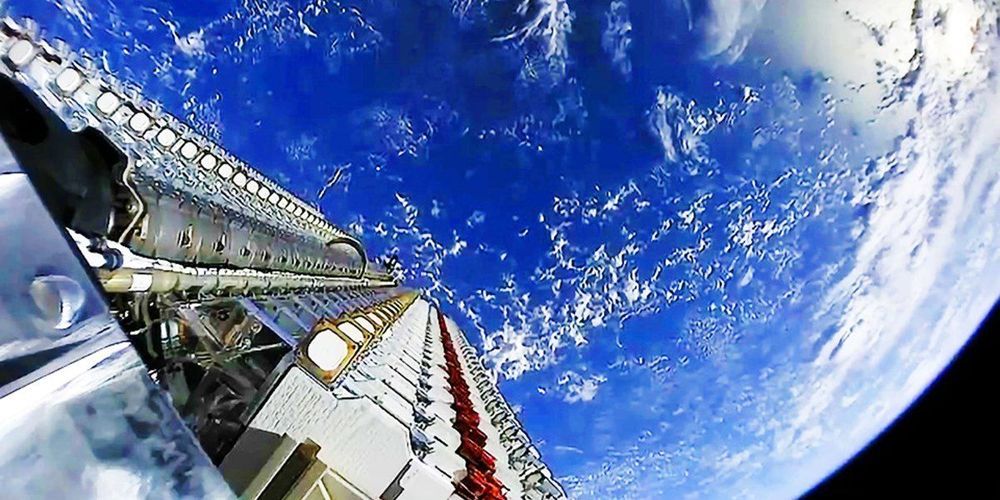/CNW/ — Walmart Canada is more than tripling its reservations of 18-wheeler Tesla Semi trucks as it drives towards its commitment to alternative power. Walmart…



Frost & Sullivan’s recent analysis, Data Science Impacting the Pharmaceutical Industry, finds that data science tools are promising technologies transforming drug discovery costs, speed, and efficiency. When combined with other emerging tech areas, artificial intelligence (AI) technologies move…
Pharmaceutical companies and hospitals are adopting data science rapidly, and its application is going to be established in all branches of healthcare
SANTA CLARA, Calif., Sept. 29, 2020 /PRNewswire/ — Frost & Sullivan’s recent analysis, Data Science Impacting the Pharmaceutical Industry, finds that data science tools are promising technologies transforming drug discovery costs, speed, and efficiency. When combined with other emerging tech areas, artificial intelligence (AI) technologies move to the next phase of advancements. Hence, they are expected to witness adoption by pharma and biotech companies in the next four to five years. Further, with the COVID-19 pandemic, AI and machine learning (ML) can be used for drug research and clinical trials against the coronavirus to screen large databases and perform docking studies to identify existing potential drugs or design new drugs using advanced learning algorithms.
For further information on this analysis, please visit: http://frost.ly/4l2.
“Applying data science tools in healthcare, especially for drug discovery, has a huge potential to systematically change the entire existing practices and methods,” said Aarthi Janakiraman, Technical Insights Research Manager at Frost & Sullivan. “Additionally, pharmaceutical companies and hospitals are adopting this system rapidly, and its application is going to be established in all branches of healthcare.”

Soyuz 11 was the only crewed mission to board the world’s first space station, Salyut 1. The crew, Georgy Dobrovolsky, Vladislav Volkov, and Viktor Patsayev, arrived at the space station on 7 June 1971 and departed on 29 June. The mission ended in disaster when the crew capsule depressurized during preparations for reentry, killing the three-man crew. The three crew members of Soyuz 11 are the only humans known to have died in space.
Music: epic background music / epic music no copyright by MUSIC4VIDEO.
A meteoroid skimmed Earth’s atmosphere for 19 seconds over the Netherlands and Germany. The object came in as low as 56 miles in altitude, covering a path of more than 466 miles.
This is how Astronauts eat food in Space!!


In a major strategy shift, Sberbank, the most popular Russian lender, wants to build its own ecosystem going far beyond the world of finance and to be known not just as a bank, but also as a tech company.
During its first major online event, which was held on Thursday, Sberbank – now rebranded as Sber – presented a range of services and gadgets signaling it wants to go deeper into the tech sector. For example, the bank presented a family of “emotional” virtual assistants, called ‘Salute’, which will be incorporated into all of Sberbank’s devices and mobile apps.
There are three assistants in the Salute family, called Sber, Joy, and Athena. Unlike Apple’s Siri or Amazon’s Alexa, the company is betting on the “emotional” features of the virtual assistants, as each has its own “temper,” allowing users to choose the one they find most suitable.
WOODS HOLE, Mass. — The dialogue between neurons is of critical importance for all nervous system activities, from breathing to sensing, thinking to running. Yet neuronal communication is so fast, and at such a small scale, that it is exceedingly difficult to explain precisely how it occurs. A preliminary observation in the Neurobiology course at the Marine Biological Laboratory (MBL), enabled by a custom imaging system, has led to a clear understanding of how neurons communicate with each other by modulating the “tone” of their signal, which previously had eluded the field. The report, led by Grant F. Kusick and Shigeki Watanabe of Johns Hopkins University School of Medicine, is published this week in Nature Neuroscience.
In 2016 Watanabe, then on the Neurobiology course faculty, introduced students to the debate over how many synaptic vesicles can fuse in response to one action potential (see this 2-minute video for a quick brush-up on neurotransmission). To probe this controversy, they used a “zap-and-freeze” imaging technology conceived by co-authors M. Wayne Davis, Watanabe and Erik Jorgensen, and built by Leica for testing in the Neurobiology course. They zapped a neuron with electricity to induce an action potential, then quickly froze the neuron and took an image. They saw multiple vesicles fusing at once at many synapses, the first novel finding of this Nature Neuroscience report.
But there was more. Back at Johns Hopkins, Kusick and Watanabe decided to walk through the neurotransmission process with zap-and-freeze, taking images every 3 milliseconds after the action potential. That’s when they found an answer to an even larger question — how do neurons change the tone of their neurotransmission signal?
